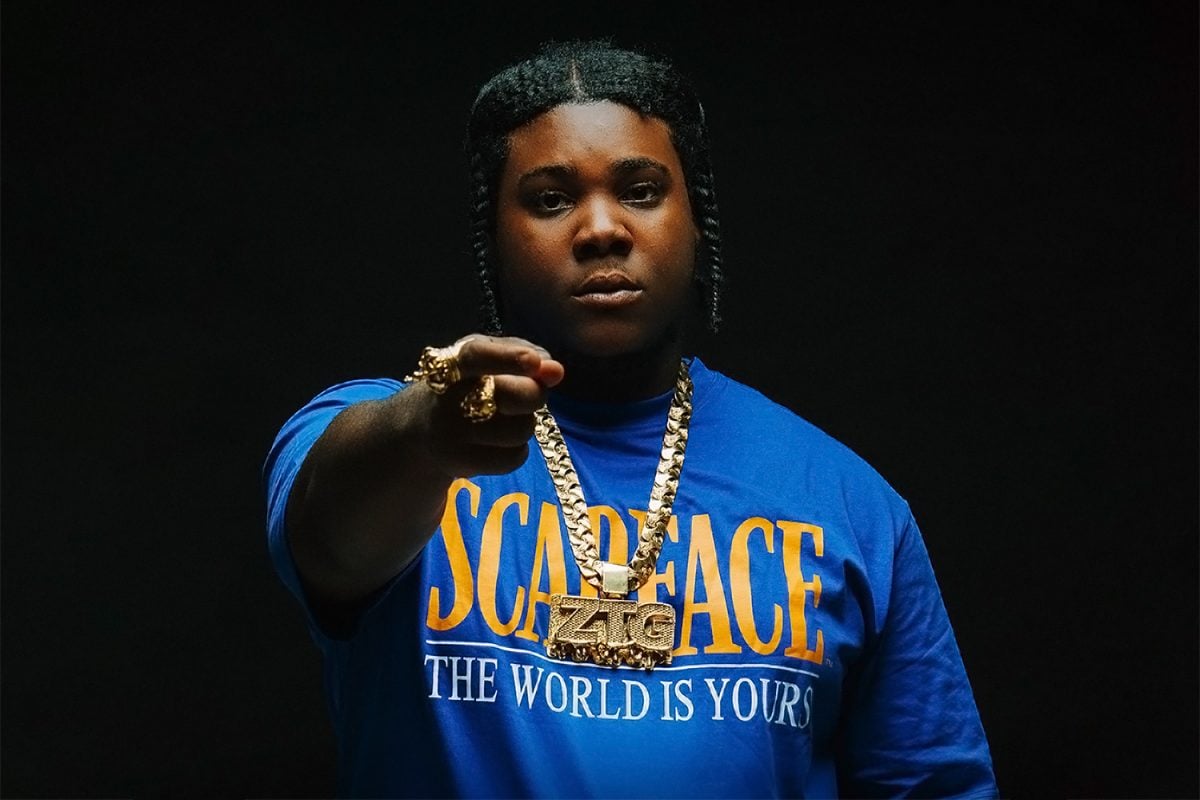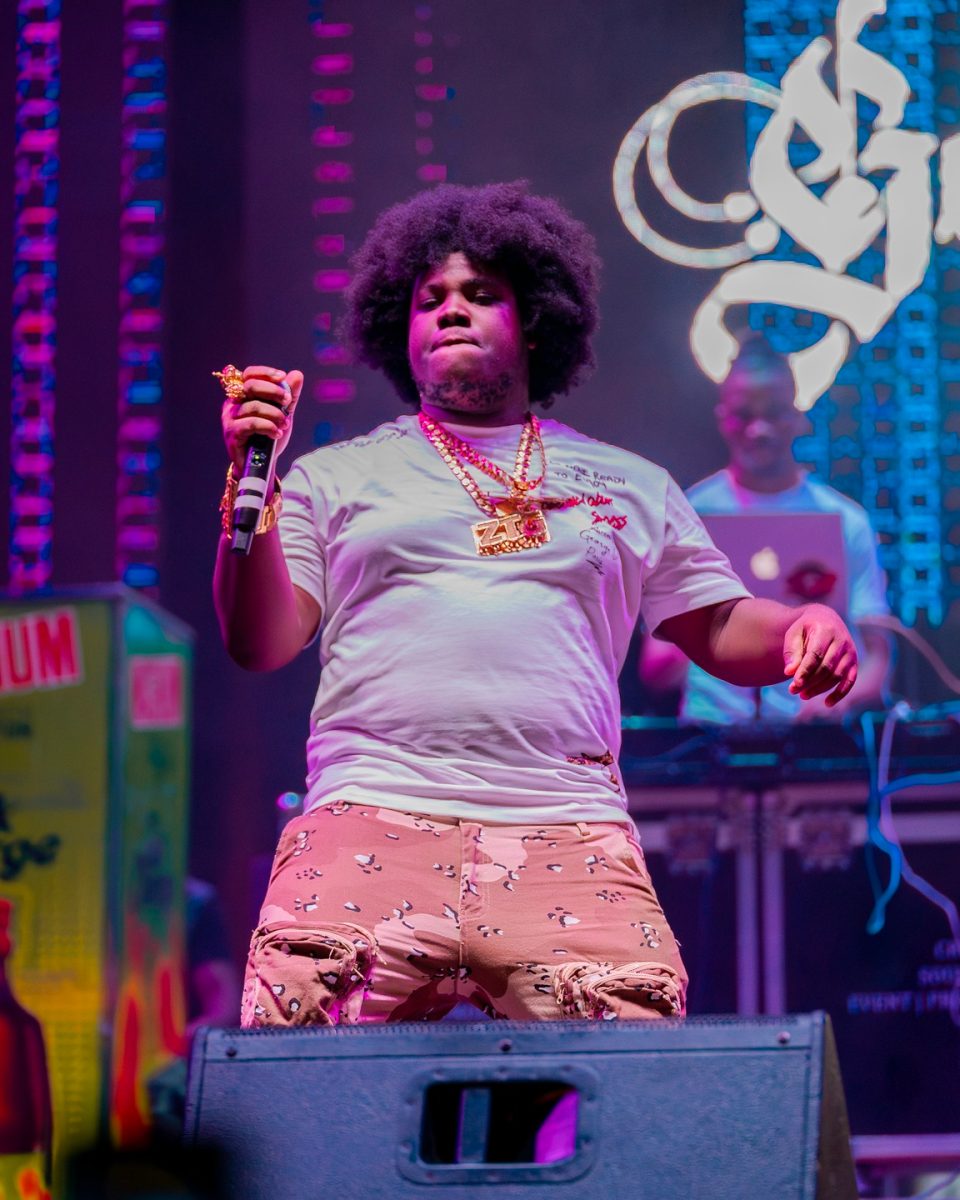Byron Messia: ‘I Got The Biggest Dancehall Song Since 2005’

Byron Messia‘s hit song Talibans has undeniably made waves this year, but the Jamaican-born Kittitian star’s recent claim that it’s the “biggest song in Dancehall since 2005” has attracted skepticism and outright disagreement from fans and music professionals alike.
On Monday, the I Hate Byron artist confidently asserted in a series of now-deleted Instagram posts that Talibans was the Dancehall genre’s biggest hit since Sean Paul’s chart-topping Temperature.
Messia, referencing his No Love album, which featured Govana, Jahshii, Rytikal, and Prince Swanny, mused in one post, “I got a Billboard Album by myself.”
“And biggest song in Dancehall since 2005,” he added in another post.
“Big song and bad song different,” he continued before highlighting it as a worthy successor to Paul’s Temperature, which reached No. 1 on the US Billboard Hot 100 in 2005.
Produced by Ztekk and EJ Fya and released in January, Messia’s song reached No. 99 on the Hot 100 and No. 12 on the UK Singles chart, following a remix with Afrobeats superstar Burna Boy. The song’s success is further underscored by its Silver certification in the UK, representing 200,000 units in sales and streaming.
The No Love album has enjoyed a 14-week tenure on the Billboard Reggae Albums chart, currently at No. 5, down from its peak at No. 3.
Earlier in June, the 23-year-old artist had moved to clarify that Talibans was indeed a Dancehall track, distancing himself from previous remarks that it blended an Afrobeats riddim with ‘grimy’ Dancehall lyrics.
His recent comments have similarly stirred the pot in the music community.
Creative Titans founder Ron André Elvis Telford reacted, “Lol he forgot about [Charly Black’s] Party Animal or [Koffee’s] Toast 😂.”
Khxos said, “So Byron Messia is trying to say ‘Talibans’ is a bigger song than Vybz Kartel’s Fever, Gyptian’s Hold Yuh, Charly Black’s Party Animal, Konshens’ Bruk Off Yuh Back, Serani’s No Games, Spice’s So Mi Like It. Ok my G 😂 Talk your talk… but don’t mistake confidence for arrogance.”
“Taliban a not even dancehall kmt,” commented producer NotNice. “A long time mi nuh see nuttin weh bex [vex] mi suh,” he added.
“The disrespect & delusion is unfathomable,” wrote Tosh Alexander.
Producer Teflon Zincfence cautioned Messia about the trappings of fame, writing in a comment, “Bryon don’t let hype and money get to your head, do your research and come back. When it bigger than Toast you call me but for now. Relax check the numbers. Fame is a Rass drug 🤦🏾♂️”.
Producer DJ Kurt Riley offered a nuanced perspective on the difference between a “big song,” a “popular song,” and a “hit song,” emphasizing the global appeal required for a track to truly “crossover.”
“We dont need to argue. The artist has his reason and opinion. We have to respect it. Just like how we want him to respect others. We just need to add our opinions without the flavor of disrespect. His song is popular in the Caribbean dispora and we can’t deny that. But outside of the diaspora, that is another question. Is the song being played on 500 mainstream radio station across the globe? Is his song getting placements? Are other artist outside of dancehall singing his song in there set? Please, im not fighting, just sharing my view,” he wrote in part.
“There is a HUGE difference between, big song, popular song and a hit song. A big song is in its own space and mind, a popular song is when most ppl know it but its being played on radio and everywhere within its own space the diaspora. A hit song it when another artist put your song in his set plus it has made its way on charts and so on. This means that particular song has global appeal across cultures making it ‘a crossover record'”.
Seemingly, in an attempt to clarify, Messia later highlighted, in another Story post, that Talibans had come close to being “the first Dancehall record to reach the UK Top 10 since Sean Paul’s We Be Burnin’” in 2005.
However, Jamaican-led tracks with Dancehall and Reggae elements, such as Stefflon Don and French Montana’s Hurtin Me (2017), Sean Paul and Dua Lipa’s No Lie (2017), and OMI’s Cheerleader (Remix) (2016), and those by non-Jamaicans, such as Rihanna and Drake’s Work (2016) have all secured top 10 positions on the UK Charts in the intervening years.
The debate spilled over to X (formerly Twitter), where users weighed in on Messia’s controversial remarks.
“At this point, Byron Messia should apologize to the people and dancehall,” one user said on Tuesday morning.
“For Byron to have named “Talibans” as the successor to Sean Paul’s “Temperature” is nuts lol,” another said.
“Byron Messia is just todays Sean Kingston … give it time. Still bumping Talibans tho,” another added.
One advised: “Byron Messia is getting too excited, act like you’ve been here before”.
“Nah even entertain that Byron Messia garbage cuz that song not making it on a Top 100 Dancehall songs list since 2005. Kartel and Mavado taking up about 50 spots,” another refuted.
One more user said, “Byron Messia thinks he has a bigger dancehall song that Vybz Kartel because it’s on the billboards.”
In a recent interview with The Shade Room, Messia expressed surprise at the global reception of Talibans. “I’m actually surprised now. You know, I wasn’t expecting the feedback and the love from around the world that the song’s getting, so yes, definitely,” he said.
In responding to a question about the attention he has gotten from bigwigs like Drake, Cardi B, Popcaan, A Boogie Wit Da Hoodie, and so on, the singer said that their recognition humbled him.
“I mean, it’s a wonderful feeling, you know, it’s surreal to me still up to this day. It’s only been seven months, too, and the record has shown a lot of love. I’m grateful, and I’m here just to make more great music. Shout out to all the artists who have tapped in and showed my record love,” he said, adding that the Drake and Lil Durk recognitions shocked him the most.

